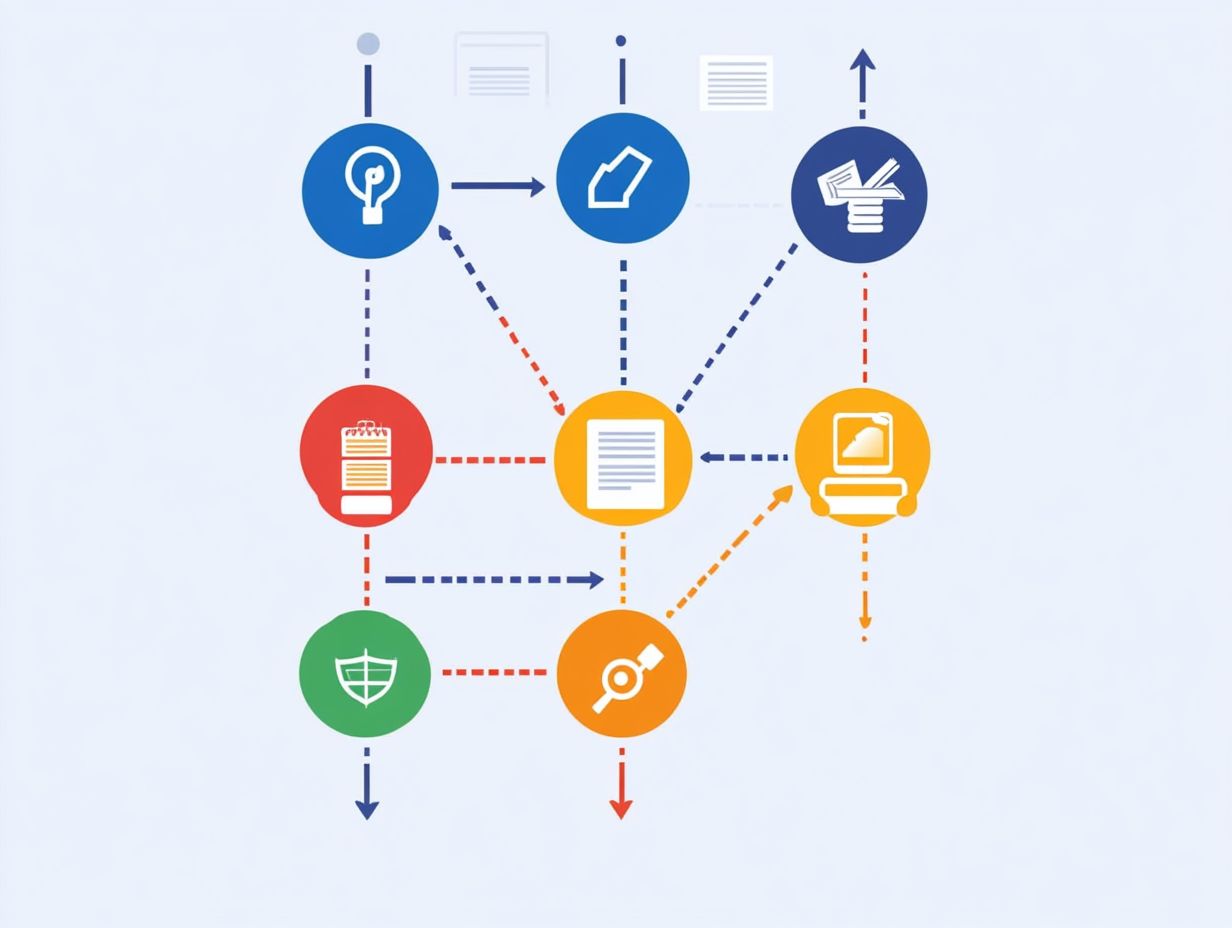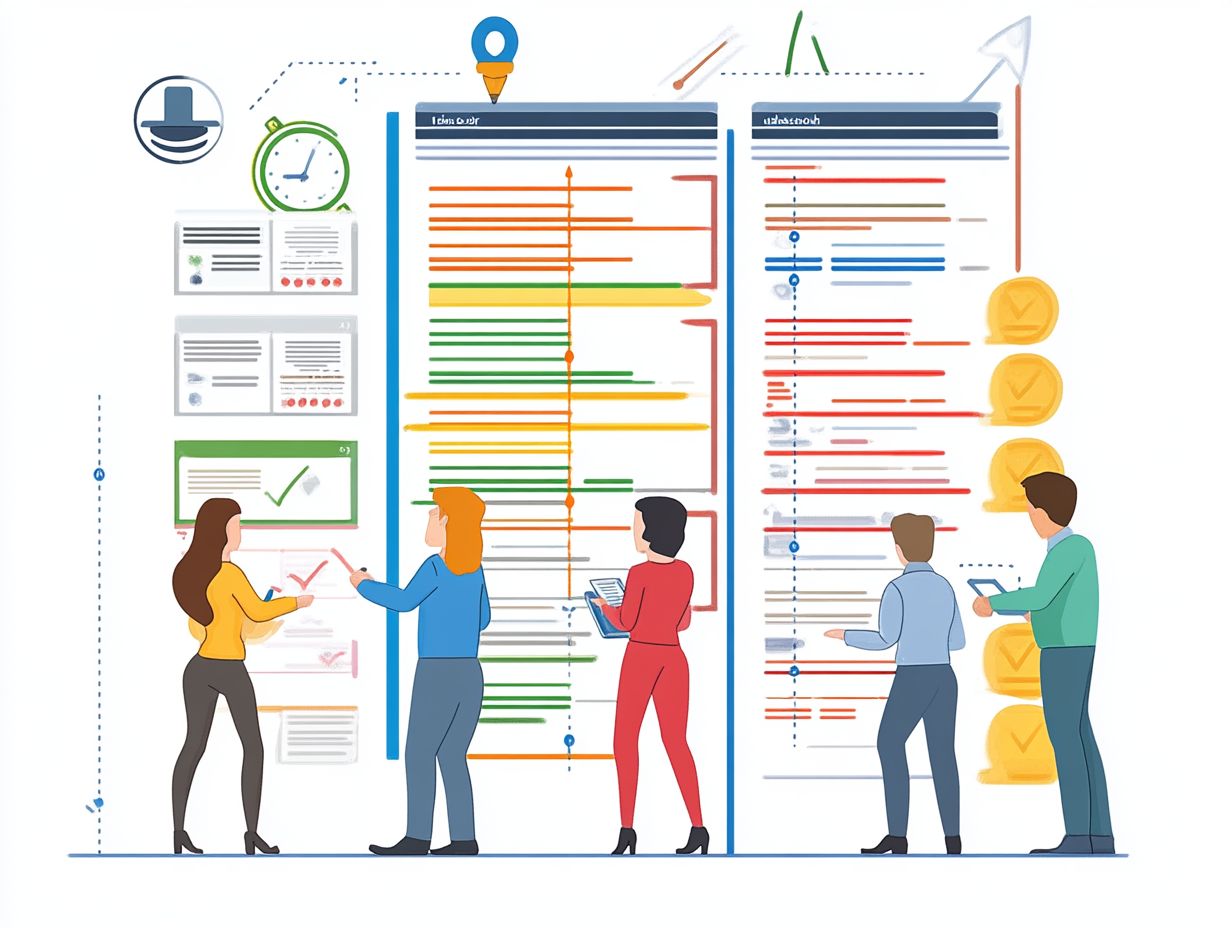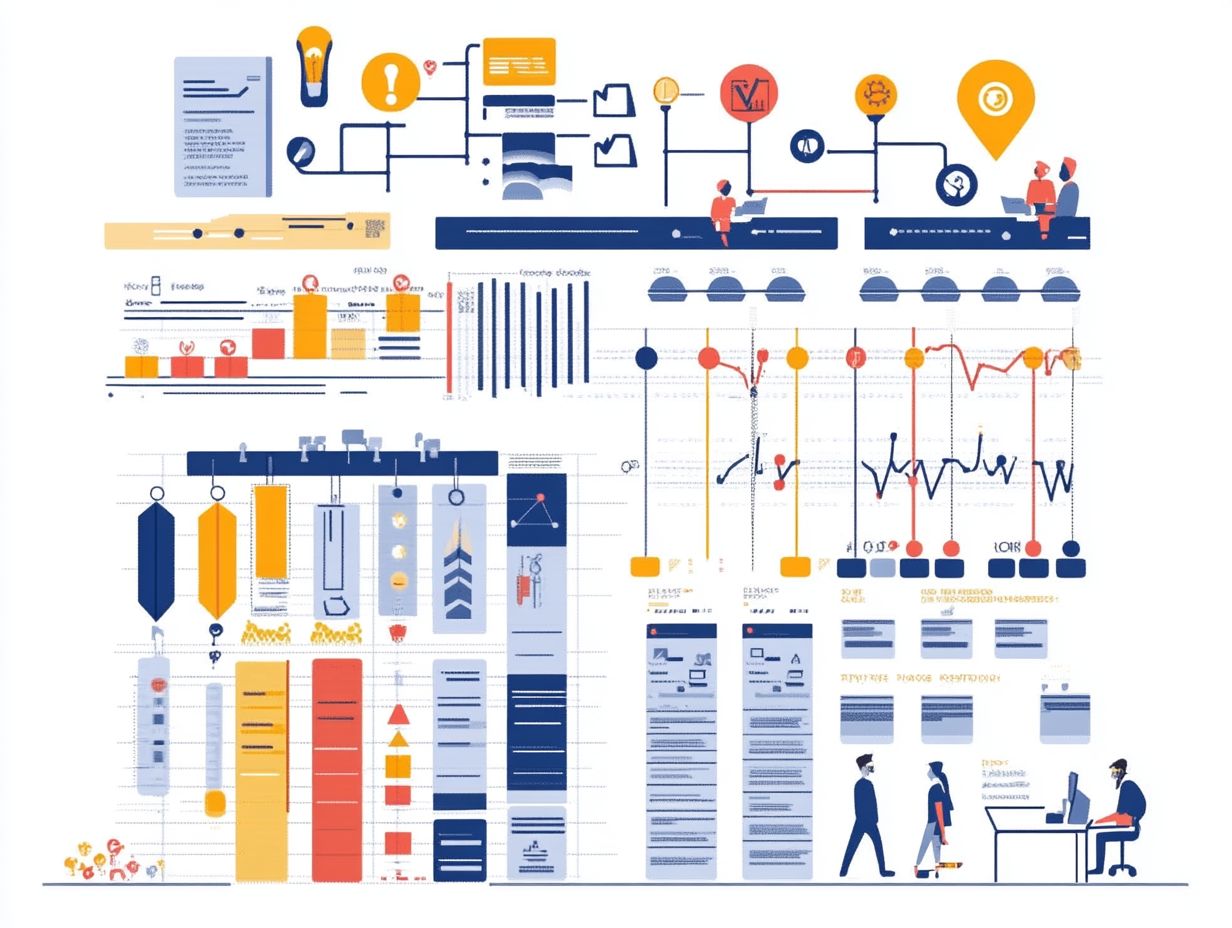5 Key Differences Between PM Certifications
Ready to take your project management career to the next level? Let s explore the key differences in certifications!
Navigating the world of project management certifications can feel a bit daunting, especially with the plethora of options at your fingertips. Each certification carries its own distinct focus, eligibility criteria, exam structure, and varying costs and maintenance obligations. Grasping these nuances is essential for anyone eager to elevate their career prospects.
This guide delves into five key differences among popular PM certifications, shedding light on their industry recognition and offering valuable preparation tips. Whether you’re a seasoned professional or just embarking on your journey, this resource will empower you to make an informed decision about your certification path.
Contents
- Key Takeaways:
- 1. The Focus of the Certification
- 2. Eligibility Requirements
- 3. Exam Format and Difficulty
- 4. Cost and Maintenance
- 5. Reconocimiento y Credibilidad
- Which PM Certification Is Right for You?
- Frequently Asked Questions
- What are the 5 key differences between PM Certifications?
- What is the focus of different PM Certifications?
- What are the requirements for obtaining a PM Certification?
- Is the recognition of PM Certifications the same?
- How much does it cost to obtain a PM Certification?
- Who is eligible to obtain a PM Certification?
Key Takeaways:

- Each PM certification has a different focus, such as project management methodologies or specific industries.
- Eligibility requirements vary and may include education, experience, or specific training.
- The exam format and difficulty can differ greatly, so prepare accordingly.
1. The Focus of the Certification
The aim of project management certification is to equip you with essential skills needed to thrive in the ever-evolving project management landscape. You’ll gain a solid grasp of different project management methods like Agile and PRINCE2, allowing you to manage the project life cycle from initiation to closure effectively.
This training not only covers technical skills but also focuses on critical areas such as risk management, stakeholder engagement, and quality assurance each vital for delivering successful projects.
These certifications lay a strong foundation in digital project management, which is increasingly pertinent in today s technology-driven world. You will gain practical, hands-on experience that reinforces theoretical concepts, enabling you to apply your knowledge in real-world scenarios.
By aligning with industry standards set by respected organizations like the Project Management Institute (PMI) and the Global Association for Quality Management (GAQM), you position yourself as a valuable asset to any organization. Your commitment to professional development not only enhances your career trajectory but also significantly contributes to overall project success.
2. Eligibility Requirements
To qualify for project management certification, you typically need to meet specific eligibility requirements that often include a mix of project management education and relevant experience. This is especially true for advanced certifications like the Project Management Professional (PMP) and Certified Associate in Project Management (CAPM).
These prerequisites ensure you have a solid foundation in project management principles and processes. For the PMP certification, you generally need to hold a four-year degree along with at least 36 months of leading projects, or a high school diploma accompanied by 60 months of project management experience. You will also need 35 hours of project management education.
On the other hand, the CAPM certification is more accessible, requiring only a secondary degree and 23 hours of project management education. These varied eligibility criteria reflect the different levels of expertise and responsibilities associated with each certification, making it important to explore understanding project management certifications so you can choose a path that aligns with your professional aspirations.
3. Exam Format and Difficulty
The exam formats and difficulties of project management certifications can vary dramatically. The PMP and CAPM exams each present unique challenges that assess your project management knowledge and skills across a spectrum of methodologies, including Agile. Here are 5 reasons to consider PMI-ACP certification as a valuable addition to your credentials, especially if you are focused on Agile and Scrum approaches.
To prepare effectively, grasping the structure and content of these exams is essential. These certifications include a mix of multiple-choice questions, case studies, and practical assessments to evaluate your understanding of project management principles.
The exams cover critical areas such as project initiation, planning, execution, monitoring, and closure. This offers you a well-rounded foundation of knowledge.
Many candidates face hurdles like managing their time effectively and deciphering complex scenarios in case studies. They also struggle to apply theoretical concepts in practical assessments. To navigate these challenges successfully, you can enhance your preparation with strategies such as:
- Participating in study groups,
- Enrolling in preparatory courses,
- Leveraging resources like practice exams and textbooks that emphasize real-world applications.
4. Cost and Maintenance

Acquiring project management certification comes with various costs that you should be prepared for. These may include examination fees, training courses, and study materials. Don’t forget about ongoing maintenance expenses, such as continuing education requirements to keep your certification valid.
Understanding these financial commitments is crucial if you’re looking to elevate your project management career. Be prepared! Costs can vary widely based on the specific certification you’re targeting. Some programs may require total investments ranging from hundreds to thousands of dollars.
For instance, registration fees alone can range between $300 and $900, while comprehensive training courses might add another $1,000 or more to your financial commitment. You will also need to obtain study materials, such as books or online subscriptions, which can lead to further expenses.
Once you re certified, it s essential to stay updated through continuing education. This typically means completing a specific number of hours or courses within each certification cycle, highlighting the importance of ongoing professional development.
Investing in training right now can sharpen your skills and unlock better job opportunities and higher salaries in this dynamic field!
5. Reconocimiento y Credibilidad
The recognition and credibility of project management certifications are crucial in establishing your professional standing in the industry. Credentials from esteemed organizations like the Project Management Institute (PMI), PRINCE2, and CompTIA Project+ carry considerable weight with employers and clients alike.
These certifications not only enhance your visibility but can also open doors to advanced career opportunities.
When companies hire or promote professionals, they often prioritize candidates who hold these respected certifications. This is due to the rigorous standards required to obtain them.
For instance, the Project Management Professional (PMP) certification is frequently viewed as an essential benchmark in the field. Meanwhile, PRINCE2 focuses on structured project management and attracts organizations that prioritize standardized processes. There are also compelling reasons to pursue a project management certification that can enhance your career prospects.
Professional organizations play a vital role by regularly updating certification requirements and guidelines. This ensures that your skills and knowledge align with the ever-evolving demands of the industry.
Ultimately, possessing these credentials can significantly elevate your career trajectory, leading to enhanced salary prospects and rewarding opportunities.
Which PM Certification Is Right for You?
Choosing the right project management certification is a big decision. It depends on your career goals, skills, and preferred methodologies like Agile or PRINCE2.
Understanding the benefits of each certification helps you align your credentials with your career goals.
For instance, if you have experience, the Project Management Professional (PMP) certification is ideal. It emphasizes leadership and strategic planning.
If you want to explore Agile practices, consider the Certified ScrumMaster (CSM).
Some certifications are specific to industries like construction or IT, which can further refine your choices based on your desired career path.
Your management style whether directive or collaborative also plays a significant role in guiding your certification selection.
As project management evolves, staying updated on emerging trends, such as hybrid methodologies and digital tools, is crucial for anyone looking to enhance their expertise in this dynamic field.
What Are the Career Opportunities for Each Certification?
Every project management certification opens up various career opportunities based on the skills it emphasizes. Whether you pursue the Project Management Professional (PMP) or Agile project management certifications, you’ll pave the way for diverse project manager roles across various industries.
If you hold a PMP certification, you ll likely step into leadership roles within sectors like construction, IT, and healthcare, where structured project management is essential.
If you specialize in Agile methodologies, you may be better suited for dynamic environments like software development or digital marketing, where adaptability and quick iteration are key.
As businesses strive for efficiency and innovation, the demand for skilled project managers remains strong, aligning seamlessly with these certifications. This trend bolsters your career stability and opens doors to emerging fields, emphasizing the importance of continuous learning in today s evolving market.
How Do Employers View Different PM Certifications?

Employers see project management certifications as signs of your commitment to the profession. Certifications like the Certified Associate in Project Management (CAPM) and Project Management Professional (PMP) are particularly esteemed for their rigor and relevance in today s job market.
These certifications enhance your resume and align with what organizations seek, making them key factors in hiring decisions. Certified individuals are often viewed as more knowledgeable about industry standards, leading to more effective project execution.
Additionally, these certifications can significantly impact salary expectations. Candidates with recognized qualifications often command higher compensation. By showcasing credibility and a commitment to improvement, these credentials help you stand out in a competitive job landscape.
What Are the Common Misconceptions About PM Certifications?
Misconceptions about project management certifications can obscure their true value and relevance in today’s professional landscape, making it essential to explore ways to enhance your PM certification experience.
Many believe that merely obtaining a certification guarantees project management skills, regardless of practical experience. It’s essential to recognize that certifications should enhance your real-world experience rather than act as complete substitutes.
Organizations increasingly realize that the skills developed through hands-on tasks and decision-making in actual projects are irreplaceable. Engaging in continuous learning through courses, workshops, and seminars is vital for keeping yourself updated with evolving methodologies and technologies.
Therefore, cultivating a balance between theoretical knowledge, practical application, and ongoing personal growth is crucial for anyone aiming to thrive in this dynamic field.
How Can One Prepare for a PM Certification Exam?
Preparing for a project management certification exam demands a strategic approach. You’ll want to immerse yourself in high-quality study materials, engage in project management training, and utilize practice exams to become familiar with the exam format and content. This comprehensive preparation ensures you’re fully equipped to ace your certification exam.
To enhance your preparation, consider exploring a variety of study resources, including:
- Textbooks
- Online courses
- Video tutorials
These resources delve into key project management principles and methodologies. Enrolling in a reputable training program not only provides structured guidance but also opens the door to networking opportunities with peers who are navigating similar challenges.
Accessing a range of practice exams can be invaluable, helping you pinpoint your strengths and identify areas for improvement. Engaging in hands-on training activities, such as simulations or workshops, fosters a practical understanding of the material.
Community forums are great places to share insights and ask questions, providing support from fellow aspirants on this journey.
What Are the Continuing Education Requirements for Each Certification?
Continuing education requirements for project management certifications are crucial for staying at the forefront of your field. This typically involves acquiring a specific number of Professional Development Units (PDUs) or Continuing Education Units (CEUs) to maintain your credentials and keep pace with the evolving landscape of project management practices.
For instance, if you’re pursuing the Project Management Professional (PMP) certification, you’ll need to earn 60 PDUs every three years. On the other hand, the Certified Associate in Project Management (CAPM) focuses more on foundational knowledge and requires just 15 PDUs within the same period.
Diving into workshops, webinars, and online courses, as well as attending industry conferences, provides invaluable networking opportunities and insights into emerging trends. Engaging in these educational pursuits is essential for anyone looking to elevate their career, as it equips you with new tools and methodologies that are vital for effective project management.
Watch this video to gain insights into preparing for PM certifications.
Frequently Asked Questions

What are the 5 key differences between PM Certifications?
The 5 key differences between PM Certifications are their focus, requirements, recognition, cost, and eligibility.
What is the focus of different PM Certifications?
Different PM Certifications have varied focus areas, including project management methodologies, industries, or specific skills. Exploring ways to boost your PM career with certification can help you choose the right path.
What are the requirements for obtaining a PM Certification?
The requirements for obtaining a PM Certification vary but usually involve a combination of education, experience, and overcoming the top challenges in project management certification before passing a certification exam.
Is the recognition of PM Certifications the same?
No, the recognition of PM Certifications can vary depending on the organization or industry. Some certifications may hold more prestige and value than others.
How much does it cost to obtain a PM Certification?
The cost of obtaining a PM Certification can range from a few hundred dollars to thousands, depending on the certification and the resources needed to prepare for the exam.
Who is eligible to obtain a PM Certification?
Eligibility for PM Certifications may vary, but it typically requires a certain level of education, work experience in project management, and meeting specific criteria set by the certification body.
Ready to elevate your project management skills? Start exploring certification options today!






